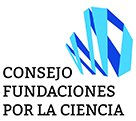In 2003, information on Severe Acute Respiratory Syndrome (SARS) was widely diffused in the media. The alarm spread on a possible global pandemic worldwide, particularly since the World Health Organization (WHO) made the unprecedented decision to warn against traveling to Western cities like Toronto. At that moment, SARS changed from being an isolated fact in a Chinese region to becoming a global event, only surpassed by the beginning of the war against Iraq. That is why the multilevel crisis brought on by ‘atypical pneumonia’ is a perfect example for the analysis of the information issued in the media and therefore an ideal topic for the second debate on science journalism of the Esteve Foundation. Four scientists involved in the field of infectious diseases on one side and four science journalists on the other sat around the same table last May 26 to analyze media coverage of SARS put into perspective.
Many aspects were mooted in the debate. The role and (sometimes disputable) management of the WHO, the informative secretiveness of the Chinese institutions, the problems concerning timing and urgency in journalism, the friction between the informative function and the training function of the media, the level of specialization of the professionals that handle scientific information. These are just a small example of the topics raised, all gathered in the Esteve Foundation Booklet number 4.
The participants in this second meeting between journalists and scientists were the following: on the one hand, Pere Gaviria, Assistant Head of the Society Section of the information services of Televisió de Catalunya, Pablo Jáuregui, Head of the Science Section of the newspaper El Mundo, Pilar Perla, Coordinator of the Supplement Tercer Milenio of the newspaperHeraldo de Aragón, and Gemma Revuelta, Assistant Director of theObservatorio de la Comunicación Científica of the Universitat Pompeu Fabra of Barcelona; on the other hand, in the scope of infectious diseases, José María Aguado, from the University Hospital 12 de Octubre of Madrid, Francesc Gudiol, from the University Hospital of Bellvitge of Barcelona, Ildefonso Hernández, from the Public Health Department of the University of Alicante, and Jerónimo Pachón, from the University Hospitals Virgen del Rocío of Seville.








